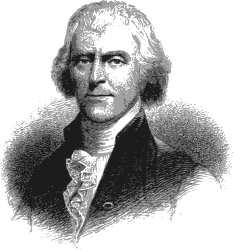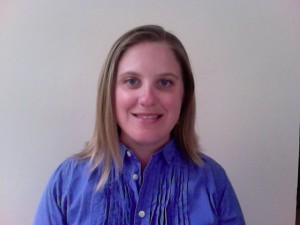VoxPopuLII
When I started to write a post about THOMAS and its place in open government about three months ago, I was feeling apologetic. I was going make a heavy-handed, literal comparison of the opening hours of the Law Library of Congress (one of the maintainers of THOMAS, and my former employer, whose views are not at all represented here) with open government. I planned to wax sympathetic on the history of THOMAS, and how little has changed since it was first built. But, that post would not have added anything new to the #opengovdata conversation, or really mentioned data at all.
 Just over one month ago, #freeTHOMAS reached a fever pitch surrounding the passage of H.R. 5882, the Legislative Branch Appropriations Act for FY2013. Just before passage, H.Rpt.511 directed official conversation on open legislative data for the coming fiscal year by saying, “let’s talk.” In a section about the Government Printing Office, the House Appropriations Committee expressed concerns about authentication and open legislative data, but called for a task force “composed of staff representatives of the Library of Congress, the Congressional Research Service, the Clerk of the House, the Government Printing Office, and such other congressional offices as may be necessary,” to look in to the matter.
Just over one month ago, #freeTHOMAS reached a fever pitch surrounding the passage of H.R. 5882, the Legislative Branch Appropriations Act for FY2013. Just before passage, H.Rpt.511 directed official conversation on open legislative data for the coming fiscal year by saying, “let’s talk.” In a section about the Government Printing Office, the House Appropriations Committee expressed concerns about authentication and open legislative data, but called for a task force “composed of staff representatives of the Library of Congress, the Congressional Research Service, the Clerk of the House, the Government Printing Office, and such other congressional offices as may be necessary,” to look in to the matter.
Opengovdata was disappointed in government. The tone of the House Report suggested that government had been dismissive of opengovdata–and in all fairness, others were beginning to be dismissive of opengovdata as well.
But, a clear classification problem was emerging. Inspired by Lawrence Lessig’s Freedom To Connect speech at the AFI in late May, I had a very librarian moment on organizational hierarchies.
#OpenGov is a really big tent. 
People who want a more open environment for government to communicate with the governed want data, increased transparency, plain language legislation, open court filings, access to government funded research, silly walks, etc. Accountability through transparency often dominates the conversation, thanks to well-funded non-profits and high profile projects. However, there’s more to the movement. In that spirit…
Let’s be transparent about transparency.
When the goal of an open government project is legislative transparency through freely accessible data, let’s focus on that. When the goal is something else, let’s focus on that too. We hear about government accountability through data because the voices calling for it are loud. But data can do much more than bring about a more transparent lawmaking process.
In the words of a wise man, make transparency your Number Two.
If you haven’t had the chance to watch this aforementioned Freedom To Connect talk, and you’ve got half an hour to spare, I highly recommend it. The subject is community broadband, but it’s hard not to be inspired to frame other issues smarter, with transparency ever-present in the background.
Let’s focus on Number One.
If the THOMAS data, for example, were open right now, this instant, you couldn’t watch it on TV. You couldn’t read it on your Kindle. It’s mere presence would not increase transparency. Someone would have to do something with it. Number One is the thing you do with the data to reach your own goal–and that goal might not be legislative transparency.
As a public law librarian to a broad constituency, my goals are different than those of a non-profit think tank, or a law firm, or a law school, or even a non-law public library. In a climate of doing more with less, of needing to show much return for little investment, we each have to frame specific, measurable, achievable Number Ones tailored to the needs of our institutions. Without these Number Ones (goals, mission statements, benchmarks, or whatever management word your organization uses), we flounder off-mission, lose focus, and potentially lose funding.
 Librarians are foot soldiers for the First Amendment–we like open information, we place a high value on the freedom to know. However, we’re among the first to be cut in tight budget situations, and we’re all too familiar with the perils of asking for something that’s overly broad, or asking for something that you can’t show narrowly tailored value for later on.
Librarians are foot soldiers for the First Amendment–we like open information, we place a high value on the freedom to know. However, we’re among the first to be cut in tight budget situations, and we’re all too familiar with the perils of asking for something that’s overly broad, or asking for something that you can’t show narrowly tailored value for later on.
With respect to open gov data: government accountability is not unimportant to me as a voter. However, as a law librarian, I need to focus on Number Ones with more specific, smaller-scale goals than transparency, that will create measurable outcomes, allowing me to show concrete value to my institution. The big picture of how information is available, and the relationship between the government and the governed is important, but it doesn’t always get you funding, and it can’t always answer the question of the patron in front of you.
What’s your Number One?
There’s plenty of data out there. What are you doing with it? How can you manipulate raw free resources into something good for your institution? There is much to be said for information for the sake of information. I can’t imagine needing to convince most library-types of that. That said, we library-types, we information professionals, we decision makers, and perhaps we citizens need to narrow open gov to make it work for us. Data is good, but a real-time interactive civics education program based on THOMAS data for K-12 students is better. Let transparency folks fight the good fight, and don’t forget their work. But while you’ve got your librarian hat on, focus on a Number One that works for you.
 Meg Lulofs is an information professional at large, blogging at librarylulu.com, editing Pimsleur’s Checklists of Basic American Legal Publications, and making mischief. She earned a J.D. from the University of Baltimore, and a M.L.I.S. from Catholic University. She welcomes feedback at meglulofs@gmail.com. You can follow her on Twitter @librarylulu, or on Facebook at facebook.com/librarylulu.
Meg Lulofs is an information professional at large, blogging at librarylulu.com, editing Pimsleur’s Checklists of Basic American Legal Publications, and making mischief. She earned a J.D. from the University of Baltimore, and a M.L.I.S. from Catholic University. She welcomes feedback at meglulofs@gmail.com. You can follow her on Twitter @librarylulu, or on Facebook at facebook.com/librarylulu.
VoxPopuLII is edited by Judith Pratt. Editors-in-Chief are Stephanie Davidson and Christine Kirchberger, to whom queries should be directed. The information above should not be considered legal advice. If you require legal representation, please consult a lawyer.
[Editor’s Note] For topic-related VoxPopuLII posts please see: Nick Holmes, Accessible Law; John Sheridan, Legislation.gov.uk; David Moore, OpenGovernment.org: Researching U.S. State Legislation.





[…] pleased to present my first VoxPopuLII post on open data for folks who aren’t exactly open data people: librarians like you and I. In a […]
[…] the side where one is not a librarian at all. I recently described myself as an “information professional at large,” and with 12.8 million Americans out of work last month, I can’t be the only one. […]